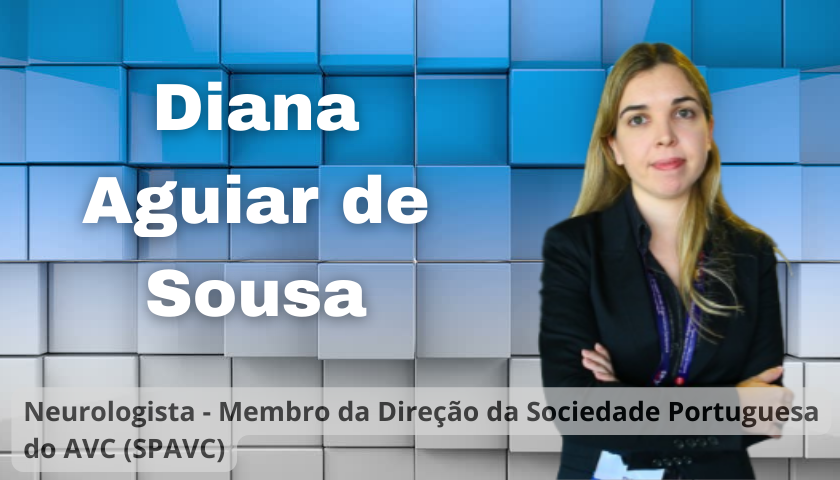Written by: Professor Diana Aguiar de Sousa – Neurologist – Member of the Board of Directors of the Portuguese Stroke Association (SPAVC)
In Portugal, cerebrovascular accidents remain the leading cause of death and disability in adults. However, we must highlight a message of hope: stroke is preventable and treatable. The duality of the disease—its devastating potential, but also its promise for prevention and recovery—highlights the urgency and importance of developing strategies that can reduce the impact of stroke in our country.
World Stroke Day, celebrated on October 29, should not just be a date on the calendar, but an opportunity for reflection and mobilization. It is estimated that one in four people will suffer a stroke in their lifetime. Recent data from the international study “Global Burden of Disease” indicate that the global number of deaths resulting from stroke rose from 2.04 million in 1990 to 3.29 million in 2019, and this number is expected to rise to 4.90 million by 2030, but About 90% of these attacks can be avoided by controlling vascular risk factors, such as high blood pressure, excess weight, high cholesterol, and diabetes. diabeticSmoking and a sedentary lifestyle. Therefore, identifying and controlling these risk factors should be the first step towards preventing this scourge in terms of public health.
However, besides prevention, it is also important to fight for the effectiveness of treatment. A rapid and appropriate response to a cerebrovascular event can mean the difference between recovery and permanent disability. Therefore, it is also essential for the entire population to recognize the signs of a stroke, known as the “3F”: “Facial” (if there is asymmetry in the mouth when smiling), “Force” (if when trying to raise the mouth). One of them bends over or does not move) and “speaks” (if he cannot speak or his speech stutters). When one of these complaints is identified, it is necessary to call 112 immediately. Advances in stroke treatment, including the implementation of “Via Verde do AVC,” have changed the prognosis of this disease. However, the success of these treatments diminishes over time, making it necessary to immediately recognize signs indicating a stroke and activate emergency services, with advance notification and referral to the hospital best prepared to receive each individual patient.
Therefore, on this occasion, we must remember that the battle against cerebrovascular diseases is not just a medical issue, but a public health issue. Therefore, our approach must be comprehensive, including health workers, teachers, political decision-makers and, above all, citizens. Together, we can reshape stroke epidemiology and build a healthier future.

“Wannabe internet buff. Future teen idol. Hardcore zombie guru. Gamer. Avid creator. Entrepreneur. Bacon ninja.”

